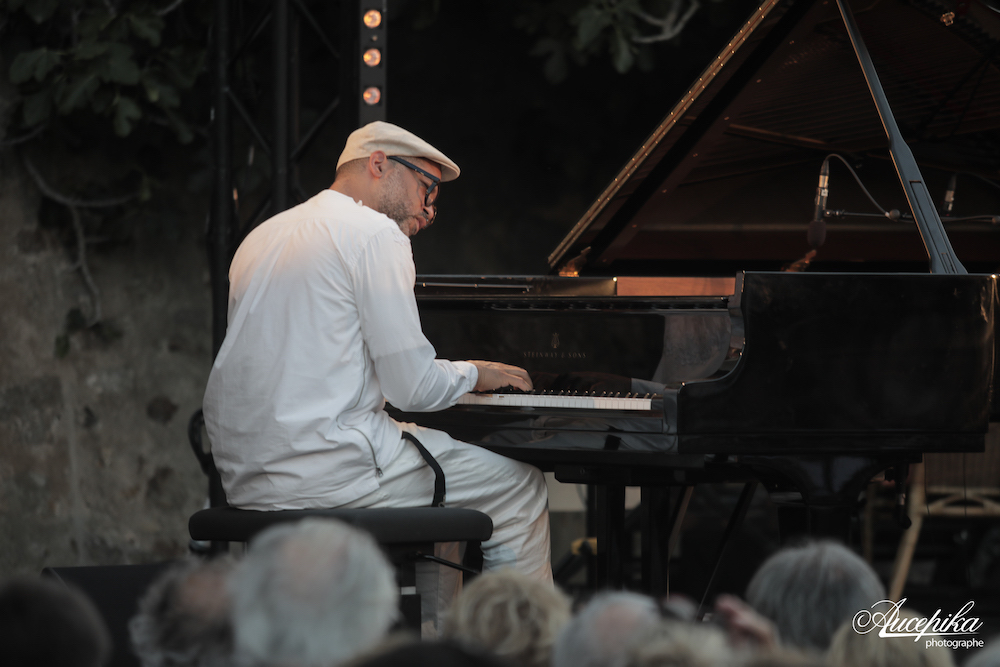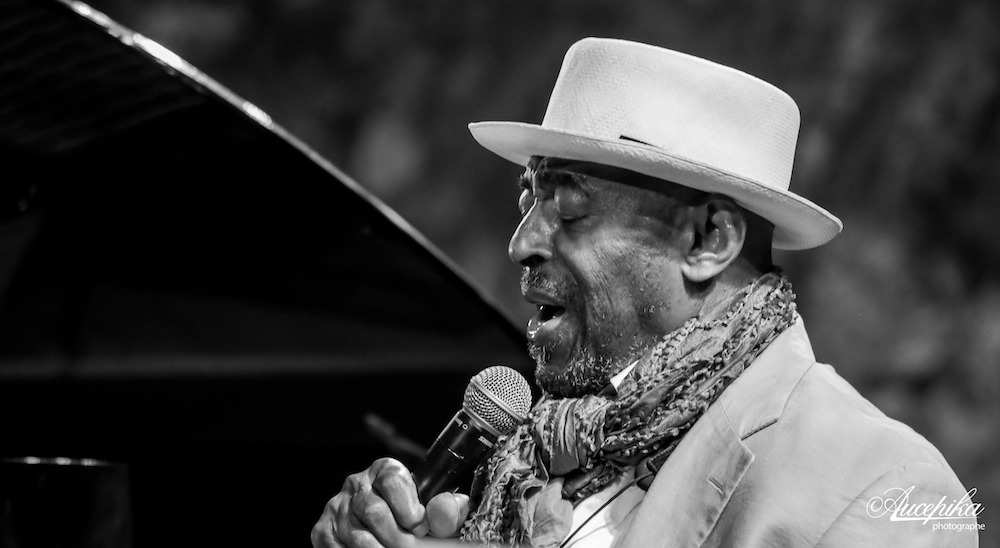“Your mission, if you accept it, will be to interview Archie Shepp”.
It was counting without the dragon who watches over the venerable saxophonist who, from the height of his eighty-five years, is nonetheless on the lookout for the slightest debate on spirituality in jazz or a conversation on the evils of capitalism. The few words exchanged before his performance at the Jazz Festival in Porquerolles are worth what they are worth, the time allotted for the meeting being so short…
Fortunately, like a paladin from medieval novels, Jason Moran agrees, after the concert, to answer our questions about his companionship with Shepp and his personal artistic perspectives.
– Is there a political intention in your saxophone sound or even more generally in your career as a “blues boy”?
AS Somewhere, yes. I write love songs as well as political songs, or songs with a social meaning. I try to stay that blues boy that I was, even if I’m not really in a state to say that I’m still a bluesman. Anyway, I always try to include a sense of the blues in my songs. I dare to hope that, when I sing the blues in any case, I reach the same intensity as in the cante jondo flamenco: it is the same music that comes from the soul, touches the heart, and expresses the deep history of people.
- Archie Shepp in Porquerolles © Aucepika photographer
– On your last album, with Jason Moran, how did you manage to combine religious themes with secular themes?
AS Music is universal. The spiritual songs, I used to sing them when I was a child in church. I think there is a certain continuity with the music of a Thelonious Monkif only through the integration of the daily life of black Americans. Charlie Parker, when he played the blues, carried some of that experience. There is the same spirituality that irrigates traditional religious music and the more modern music of Billy Strayhorn and Duke Ellington, or mine. The album makes the link between these universes.
– Do you expect your musical partners to have the same political, even Marxist, sensibility as you?
AS. Not really. Even if for example jason moran is very concerned with the history of African Americans, what matters to me is above all to share spiritual vibrations with him. And so it has been throughout my career.
– Jason Moran, how do you feel after such an intensely emotional gig with Archie Shepp?
JM I’m just exhausted because it takes a lot of energy. Sometimes we tend towards the same goal. But, honestly, with Archie, we don’t know what the outcome is going to be. Whether it’s the smallest note, the smallest beat, from the slightest word, we must be more than concentrated. It’s not just the physical energy that passes through my hands and fingers. It’s about mental energy because we don’t go sometimes down, sometimes up: we pull more and more downwards, towards the depths, the core of the earth. I love this trip. Really worth it.

- Jason Moran in Porquerolles © Aucepika photographer
– What about your personal projects after this tour?
JM I have a new album to be released around the figure of James Reese Europe. I also have an upcoming exhibition of my work as a visual artist as well as a set of stage installations around the figure of Sam Rivers, with whom I worked about twenty years ago and to which Archie contributed. I’m very interested in how music can speak to other people outside of the jazz world. I am well aware that many people cannot afford to attend a festival like this (Jazz à Porquerolles, NDLR). I continue my work around the work of Toni Morrison also. He was a supreme spirit, who knew how to transcribe the emotional experience of African Americans, even in the way people walk, eat, cry, cook, dress, laugh or love, beyond his extreme literary talent. . I tried, with all due respect to the immense delicacy of Mrs Morrison, to let the piano play similar sensations on the last track of the set with Archie (“Sometimes I Feel Like a Motherless Child”), who is him -even poet, lyricist. I think language is as important, if not more, than music. In particular the oral language, which the writer succeeded in transposing into magnificent texts, especially in its rhythmic dimension. The way she succeeded in restoring that is, for me, as fundamental as a record of John Coltrane. I often tell this to my students. With her feminism, which could only make the world a better place, as in the novel “Paradise” where she shows that the freedom of some cannot go without that of others. We need such creative energy now more than ever, to be the water that can put out the fire.
– What about your musical perspectives that you developed more than ten years ago, between classical and rap inclinations in particular?
JM I’m getting old. I’m always interested in how rap evolves, especially in terms of colors and rhythm. However, I’m evolving more towards a more global form of art so that I can no longer content myself with being just a musician. The songs I composed almost twenty years ago are still part of me, as are standards like “Ain’t Misbehavin'” by Fats Waller, which we played tonight with Archie and to whom I paid tribute on an album. When I signed with Blue Note, I was still a kid. Looking back, at forty-seven years old, I realize that I also have other centers of interest, whether it’s the new images of the universe that came out this summer, or writing music for my daughter who is destined to be a ballet dancer.

